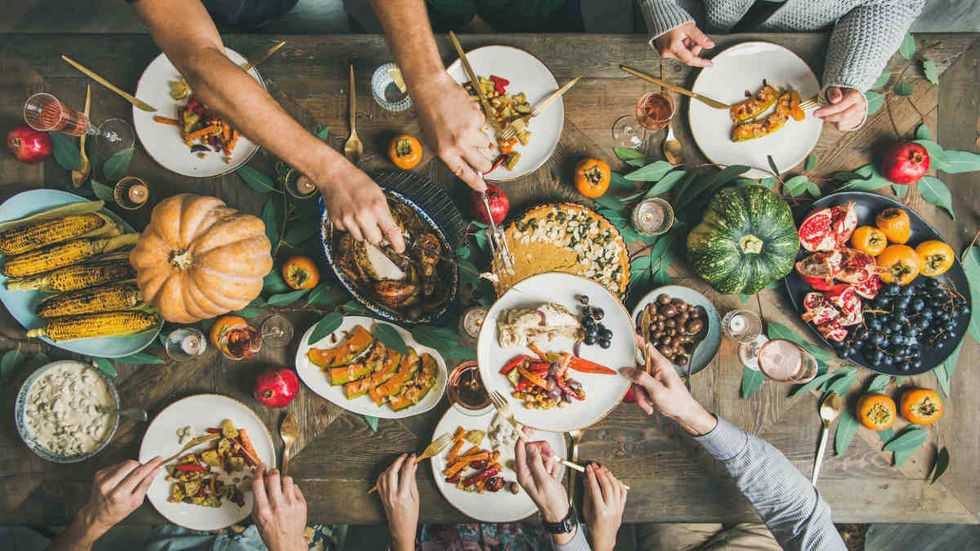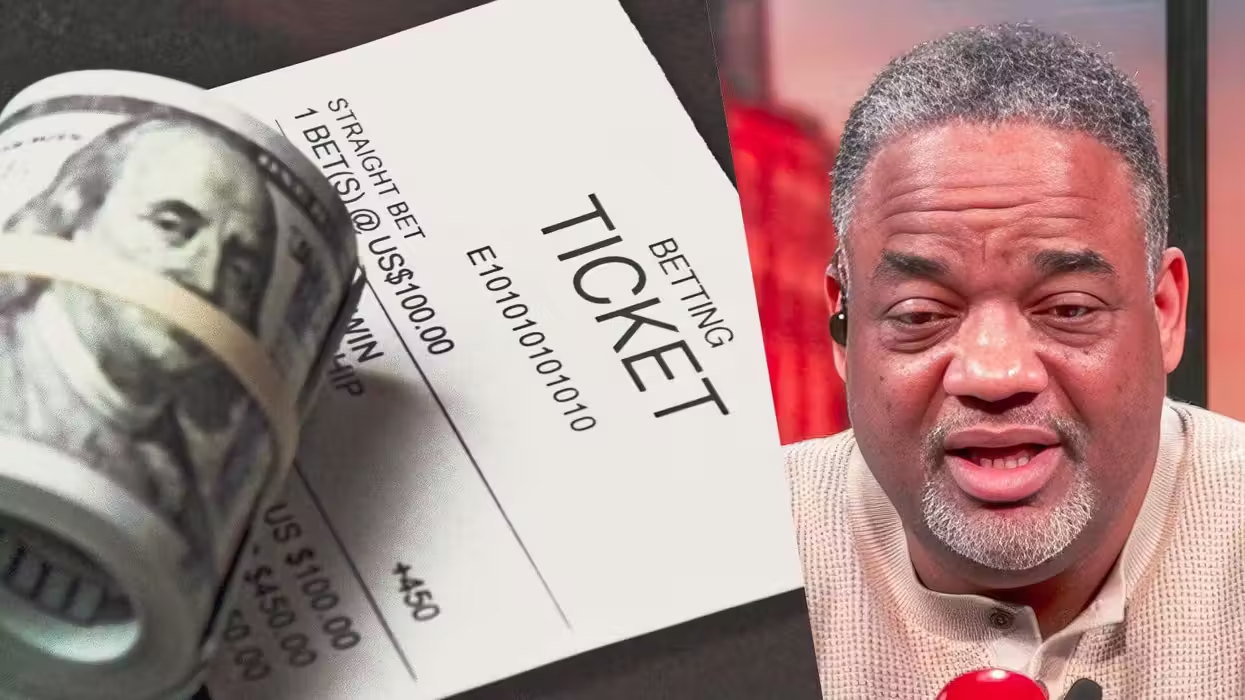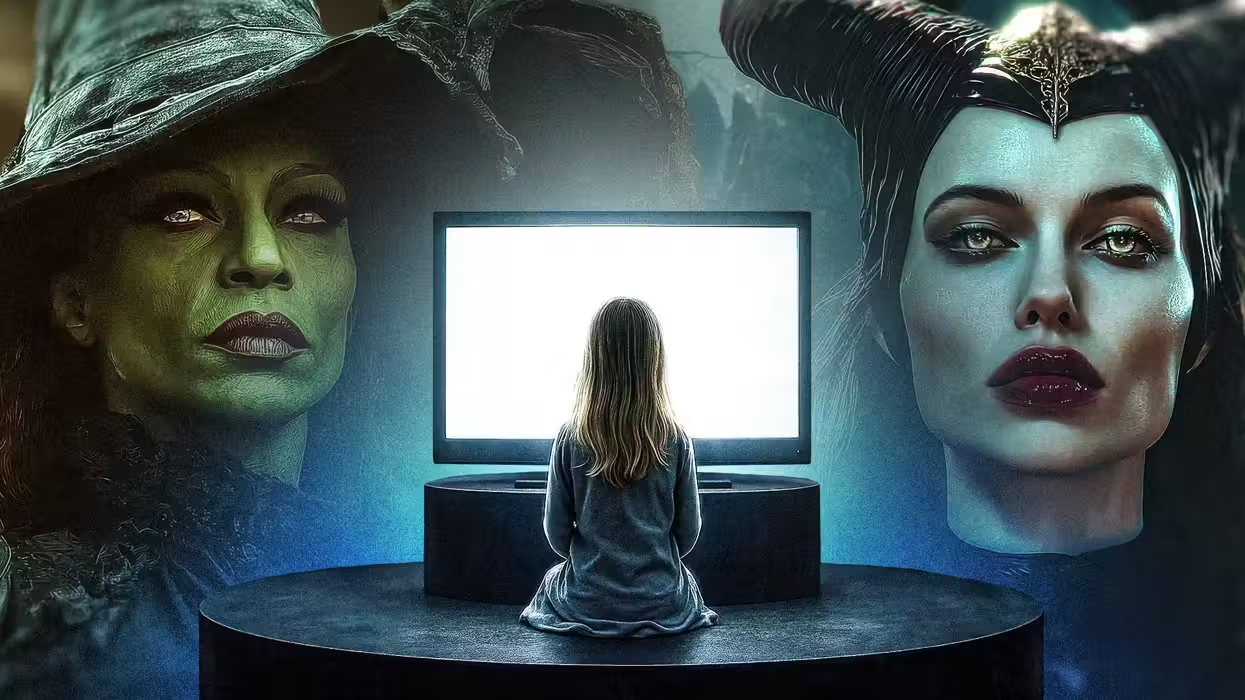
© 2025 Blaze Media LLC. All rights reserved.
Student groups claim Thanksgiving is 'celebration' of 'ongoing genocide.' History says LOL
November 21, 2018
The progressive war against American traditions continues on America's college campuses. The Thanksgiving holiday is under attack for being associated with "genocide."
The University of Oregon's Native American Law Students Association and the Native American Student Union are hosting an event titled, “Thanks But No Thanks-giving: Decolonizing an American Holiday,” Kenneth Nelson reports for Campus Reform. The event seeks to teach students how they can be grateful "while raising our critical consciousness and identifying ways to decolonize the holiday."
From the event description:
Millions of families gather together every year to celebrate Thanksgiving in the United States. Many Americans do not grow up thinking much of the history behind the holiday. The main messages are that of gratitude, food, and family; however, Thanksgiving is, foundationally speaking, a celebration of the ongoing genocide against native peoples and cultures across the globe. In collaboration with the Native American Student Association (NASU), we will focus on ways in which we can continue to show gratitude while raising our critical consciousness and identifying ways to decolonize the holiday.
Thanksgiving,"foundationally speaking," is not a celebration of genocide. The first Thanksgiving meal was shared between Plymouth, Mass., colonists and Wampanoag Indians, giving thanks for God's provision and the Indians' help in teaching the struggling colonists how to survive.
Here's a short history, courtesy of the History Channel:
In September 1620, a small ship called the Mayflower left Plymouth, England, carrying 102 passengers—an assortment of religious separatists seeking a new home where they could freely practice their faith and other individuals lured by the promise of prosperity and land ownership in the New World. After a treacherous and uncomfortable crossing that lasted 66 days, they dropped anchor near the tip of Cape Cod, far north of their intended destination at the mouth of the Hudson River. One month later, the Mayflower crossed Massachusetts Bay, where the Pilgrims, as they are now commonly known, began the work of establishing a village at Plymouth.Throughout that first brutal winter, most of the colonists remained on board the ship, where they suffered from exposure, scurvy and outbreaks of contagious disease. Only half of the Mayflower’s original passengers and crew lived to see their first New England spring. In March, the remaining settlers moved ashore, where they received an astonishing visit from an Abenaki Indian who greeted them in English. Several days later, he returned with another Native American, Squanto, a member of the Pawtuxet tribe who had been kidnapped by an English sea captain and sold into slavery before escaping to London and returning to his homeland on an exploratory expedition. Squanto taught the Pilgrims, weakened by malnutrition and illness, how to cultivate corn, extract sap from maple trees, catch fish in the rivers and avoid poisonous plants. He also helped the settlers forge an alliance with the Wampanoag, a local tribe, which would endure for more than 50 years and tragically remains one of the sole examples of harmony between European colonists and Native Americans.
In November 1621, after the Pilgrims’ first corn harvest proved successful, Governor William Bradford organized a celebratory feast and invited a group of the fledgling colony’s Native American allies, including the Wampanoag chief Massasoit. Now remembered as American’s “first Thanksgiving”—although the Pilgrims themselves may not have used the term at the time—the festival lasted for three days. While no record exists of the historic banquet’s exact menu, the Pilgrim chronicler Edward Winslow wrote in his journal that Governor Bradford sent four men on a “fowling” mission in preparation for the event, and that the Wampanoag guests arrived bearing five deer. Historians have suggested that many of the dishes were likely prepared using traditional Native American spices and cooking methods. Because the Pilgrims had no oven and the Mayflower’s sugar supply had dwindled by the fall of 1621, the meal did not feature pies, cakes or other desserts, which have become a hallmark of contemporary celebrations.
The Thanksgiving holiday is literally a celebration of "one of the sole examples of harmony between European colonists and Native Americans." But progressive iconoclasts need to rewrite the history of great American traditions to advance an ideology of oppression that demands government action to address perceived inequalities. So Thanksgiving must be rewritten to be a problematic celebration of "genocide" that Americans should feel bad about.
No thanks.
#mc_embed_signup{background:#fff; clear:left; font:14px}
/* Add your own MailChimp form style overrides in your site stylesheet or in this style block.
We recommend moving this block and the preceding CSS link to the HEAD of your HTML file. */
Want to leave a tip?
We answer to you. Help keep our content free of advertisers and big tech censorship by leaving a tip today.
Want to join the conversation?
Already a subscriber?
more stories
Sign up for the Blaze newsletter
By signing up, you agree to our Privacy Policy and Terms of Use, and agree to receive content that may sometimes include advertisements. You may opt out at any time.
Related Content
© 2025 Blaze Media LLC. All rights reserved.
Get the stories that matter most delivered directly to your inbox.
By signing up, you agree to our Privacy Policy and Terms of Use, and agree to receive content that may sometimes include advertisements. You may opt out at any time.






